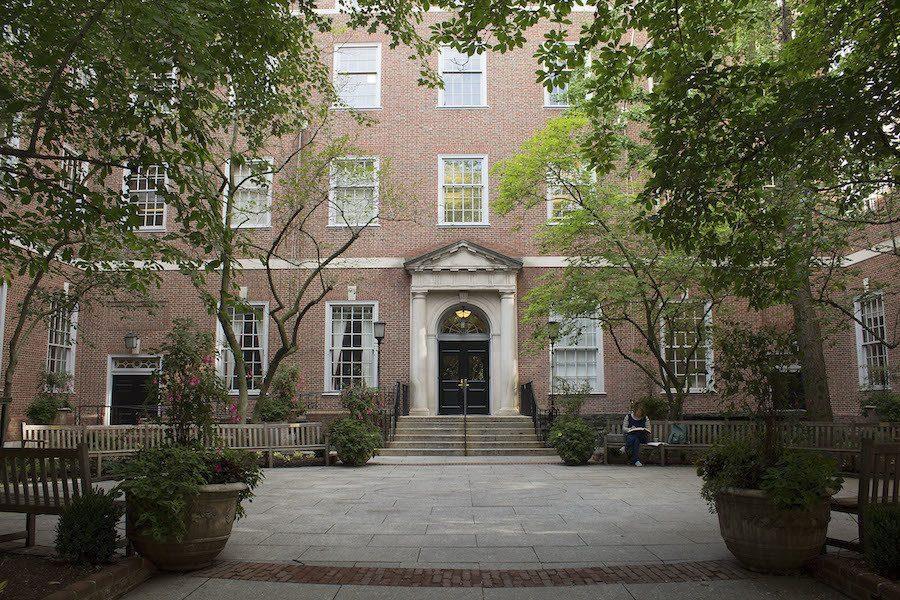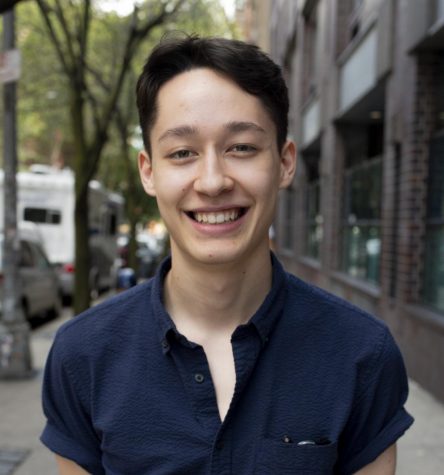Q&A With Alina Das: A Lawyer Defending Refugees at JFK
NYU Law’s Immigrant Defense Initiative is working to help those who are at risk with President Trump’s immigration policies.
February 3, 2017
Students, faculty and staff at the NYU School of Law scramble to defend those targeted by President Donald Trump’s recent executive orders.
NYU’s Immigrant Defense Initiative — a division of the Immigrants Rights Clinic designed specifically for the NYU community after Trump was elected President — works to defend those put at risk by Trump’s recent immigration policies.
The aforementioned executive order bans immigration from seven Muslim countries and indefinitely prevents Syrian refugees from entering the country, restricting the admission of refugees from the United States. With the ban’s enforcement, thousands of refugees have been left stranded at airports across the country, such as John F. Kennedy International Airport.
IRC has been defending immigrants who are at risk of deportation and detention. IRC Co-Director Alina Das has been working tirelessly since last Friday but took some time to speak with WSN about NYU Law. Das was not able to disclose the names of her clients but she spoke openly about the work being done to aid those affected by Trump’s executive order.
Washington Square News: What have the past few days been like?
Alina Das: When the news broke on Friday, there was a lot of uncertainty about what it would mean, but by Saturday we were seeing so many people being held in airports across the country, including at JFK. I received a call that an NYU student was detained at JFK, so I went to JFK and essentially spent, I think, about 22 hours there working first on behalf of her case. She fortunately was released on Sunday morning. There was a whole mobilization of lawyers who were there, so everyone was able to get representation. People were essentially being told that if they did not withdraw their application of admission into the United States, they should be given an expedited removal order and a five-year ban to coming in the country. A lot of people were signing these documents and making arrangements to get on the next possible flight out of the United States to avoid the removal order. It was essentially a race against the clock.
We filed petitions on behalf of the various people being held and tried to communicate with the government and the CBP [Customs and Border Patrol] to ensure that they would be released. It took an incredibly long period of time to be released. It’s clear the government still hasn’t quite worked out a system even under the stay to make sure that people are not held for prolonged periods of time.
WSN: More broadly, how is NYU’s Immigrant Rights Center helping NYU students and immigrants?
AD: The Immigrant Rights Clinic itself is set up as a program of the Law School where students can represent immigrants facing deportation and detention as well as immigrant rights organizations that have community based campaigns. We haven’t represented NYU students or staff in the past. We decided to create the Immigrant Defense Initiative as a project of the clinic to provide legal advice and representation to NYU students and staff because of the fear that raced through the community after the election. Unfortunately, I think what we’ve seen over the last few days demonstrates a lot of the campaign promises that President Trump made. He is now trying to deliver, and he is doing it in a way that pays no attention to the rule of law or to basic principles of human dignity and fairness. So as a way of supporting our community through this very scary time and ensuring that their rights are protected, we created the Immigrant Defense Initiative in partnership with WilmerHale, a law firm that is providing us with pro bono support.
WSN: Does the IRC have any specific strategies to fight Trump’s immigration clampdown or to fight on behalf of immigrants?
AD: Yes — as you can imagine, we as an academic program came into this year with a full docket of cases and campaigns, so our students continue to represent immigrants who are facing deportation and detention. I personally was not expecting the election results that we received in November, and of course the outpouring of need following those results, so now the IRC is building its capacity to take on these new initiatives, these new executive orders, how they will not target [our old and new clients] as well as how they will fundamentally change the way the already broken immigration system works in this country. In addition to protecting the clients we had already prior to the election, the clinic is exploring other forms of litigation and advocacy to challenge aspects of President Trump’s executive orders.
WSN: What’s next for the executive order?
AD: There are three different immigration executive orders, each of which is deeply flawed and unconstitutional. We’ve seen the most dramatic impact with the Muslim ban that Trump put into place this past Friday, and that has sparked the need for litigation all across the country, of which many have been successful in the sense that they have gotten temporary stays of different aspects of the Muslim ban. Those stays are in place until the case is fully litigated. Litigation is expected to move rapidly, but the power of those stays is already having an effect, which is why people who are detained at airports are able to eventually get released instead of being deported. As other aspects of the executive order take shape and change in policy or practice by the agency, I think it’s fair to say that those aspects of his executive order will be met with excellent litigation in order to try to stay those programs as well. That being said, this is a moving target. There are new things the administration is trying all the time, and it is very likely that they will put a lot of effort into enforcing their executive orders, as much as they possibly can despite the fact that courts are trying to place limits on Trump’s unconstitutional power grab.
WSN: Do you have a favorite moment?
AD: This weekend, the most powerful moments for me, being in a really horrific situation of watching families being separated because of the Muslim ban, is twofold: one is the incredible protest that occurred at JFK. As lawyers were gathering inside to assist families, there was an outpouring of community support, protesting this ban outside the airport. That was incredibly powerful to see, and I think it meant a lot to the families who were in the airport waiting for their loved ones to come out of detention. The second moment was really seeing the families and the individuals who had been detained being released. I came to the airport not knowing the people who were detained. I came to support their families and loved ones, and to meet for the first time this mother, this student, these parents, the fiancee of the people I had met who were incredibly scared and concerned about this ban. To see that reunion demonstrated to me just how powerful the affected communities are, how much they and their bond represent what is best about America right now and how important it is for us to stand together against the kinds of policies that will tear these families apart. Those to me are my favorite moments over the course of the last very, very rough week.
Email Sayer Devlin at [email protected]




























































































































































